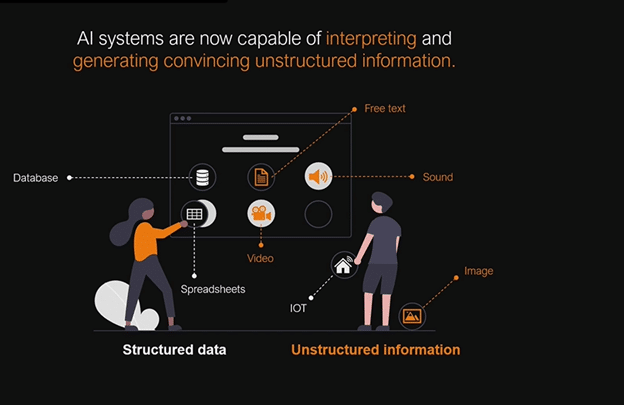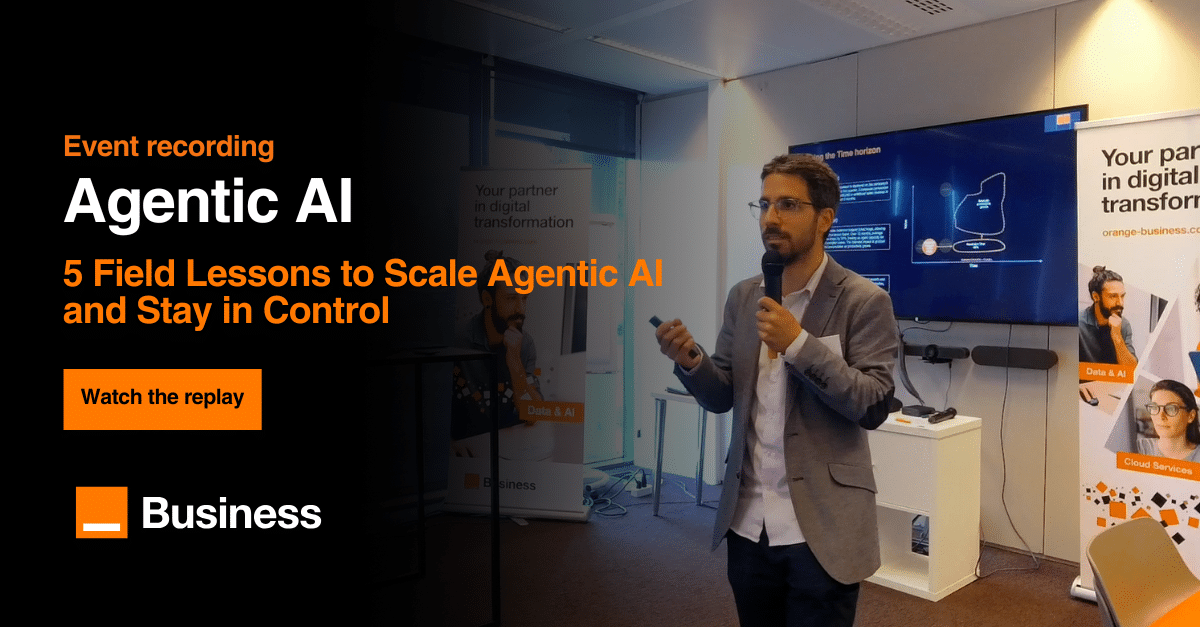In the dynamic world of technology, the emergence of generative artificial intelligence (AI) has marked a new era of innovation. This transformative technology is not just reshaping the landscape of AI but also redefining the strategies organizations must adopt to stay competitive and relevant. The integration of generative AI into business operations offers immense potential, necessitating a robust and forward-thinking data strategy. This article explores the pivotal aspects of crafting a data strategy for implementing Generative AI.
What you will learn in this article:
- Understanding Generative AI and its Business applications
- Upskilling Workforce: A Key to Leveraging Generative AI
- Data Quality and Governance: The Backbone of AI Systems
- Addressing Broader Challenges: Ethics, Sustainability, and Compliance
Reading time: 4 minutes
1. Understanding Generative AI and Its Business Implications

Generative AI, a groundbreaking technology, has the capability to revolutionize various facets of business operations. It encompasses three main areas: content generation, leveraging unstructured documents, and enhancing digital tool interactions.
The implications for global GDP (Gross Domestic Product) growth, as projected by McKinsey, are significant. Businesses must understand these capabilities and prepare to integrate them into their existing systems, transforming the way they operate and compete.
Generative AI, a branch of AI, encompasses three key capabilities that promise to reshape industries and sectors:
1. Content Generation
Generative AI can autonomously create a wide range of content, from written articles and marketing materials to images and videos. There are numerous practical applications: social media posts, product sales descriptions. Implementing Generative AI can also address specific branding needs (slogan, logo, visual or even video illustration) or offer the same presentation in different forms to differentiate from the competition. This not only accelerates content production but also opens up new creative horizons.
2. Digital Tool Interaction
Generative AI enhances user experiences by enabling natural and intelligent interactions with digital tools. Virtual assistants and chatbots, powered by Generative AI, offer seamless and personalized customer support, driving customer satisfaction.
3. Unstructured Document Utilization
One of the game-changing features of Generative AI is its ability to extract meaningful insights from unstructured data sources, such as emails, reports, and customer feedback. This empowers organizations to make data-driven decisions with unprecedented precision.
2. Upskilling Workforce: A Key to Leveraging Generative AI
The advent of generative AI necessitates a cultural and educational shift within organizations. Upskilling employees, both technical and non-technical, is crucial to effectively leverage this technology. Understanding the potential, limitations, and best practices for interacting with generative AI tools ensures that businesses are well-equipped to harness its capabilities. This initiative will bridge the gap between current skill sets and the demands of emerging AI technologies.
Upskilling employees, both technical and non-technical, is crucial to effectively leverage this technology.
3. Data Quality and Governance: The Backbone of AI Systems
The successful implementation of generative AI relies heavily on the seamless integration of company data platforms and information management systems. These assets essentially define the company’s value proposition and competitive advantages.
A clear vision of these assets, along with a strategic approach to organizing, measuring their quality, accuracy, and reliability, is essential for empowering Generative AI models with relevant and manageable information. Prioritizing data quality directly impacts the effectiveness and efficiency of generative AI applications, ensuring they deliver valuable outcomes aligned with organizational goals.
4. Addressing Broader Challenges: Ethics, Sustainability, and Compliance
Implementing generative AI transcends technological considerations. Organizations must address internal challenges such as cultural shifts, infrastructure readiness, and compliance with legal directives. Furthermore, ethical considerations and sustainability must be integral parts of AI initiatives. These considerations ensure that the adoption of generative AI aligns with the broader goals of societal well-being and sustainable development.
The potential of generative AI is immense, and its strategic importance cannot be overstated. However, harnessing its full potential requires more than just technological adoption. Organizations must develop comprehensive data strategies that encompass upskilling, data governance, ethical considerations, and sustainability. By addressing these broader challenges, businesses can effectively navigate the transformative journey of generative AI, unlocking new opportunities for innovation and growth.
At Orange Business, within Digital Services business line, we’re actively preparing to incorporate AI solutions into our clients’ operations. Through our consulting and implementation services, we help businesses harness the power of AI to drive innovation and growth.















Comments (0)
Your email address is only used by Business & Decision, the controller, to process your request and to send any Business & Decision communication related to your request only. Learn more about managing your data and your rights.